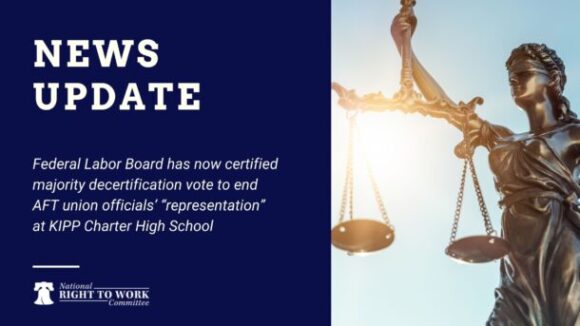Will Team Biden Weaponize Workers’ Pensions?
Big Labor abuse of worker pension and benefit funds as a means of advancing union bosses’ self-aggrandizing policy objectives is a familiar phenomenon.
Mark Mix, President of the National Right to Work Committee:
“This is a great day for Michigan’s workers and taxpayers. Voluntarism and free association are quintessential American ideals and we applaud Michigan’s efforts to embrace worker freedom and individual choice in regards to union affiliation.
“I would like to congratulate Michigan’s workers for their newly-protected freedom to work without union affiliation as a condition of their employment.
“In addition to greater freedom for Michigan’s workers, the Right to Work law will provide significant economic benefits for the state’s workers and small businesses. Right to Work laws are proven job creators that enjoy bipartisan support in 23 other states across the country, with 8 in 10 Americans consistently telling pollsters that they think it is wrong for union officials to have the power to order workers fired for refusing to join or pay dues to a union.
“Over the past decade, private sector employment increased by 12.5 percent in Right to Work states, but fell by 5.9 percent in Michigan. Furthermore, a recent study found that families in Right to Work states have nearly $4,300 more in purchasing power than families in non-Right to Work states.
“In the past two months, Michigan union bosses found out the hard way that Right to Work is popular among Michigan’s voters and taxpayers. The resulting employee freedom will usher in a new, better era for Michigan.”

Big Labor abuse of worker pension and benefit funds as a means of advancing union bosses’ self-aggrandizing policy objectives is a familiar phenomenon.

What impact does handing a union monopoly power to deal with your employer on matters concerning your pay, benefits, and work rules have on your pay?

Federal Labor Board has now certified majority decertification vote to end AFT union officials’ “representation” at KIPP Charter High School